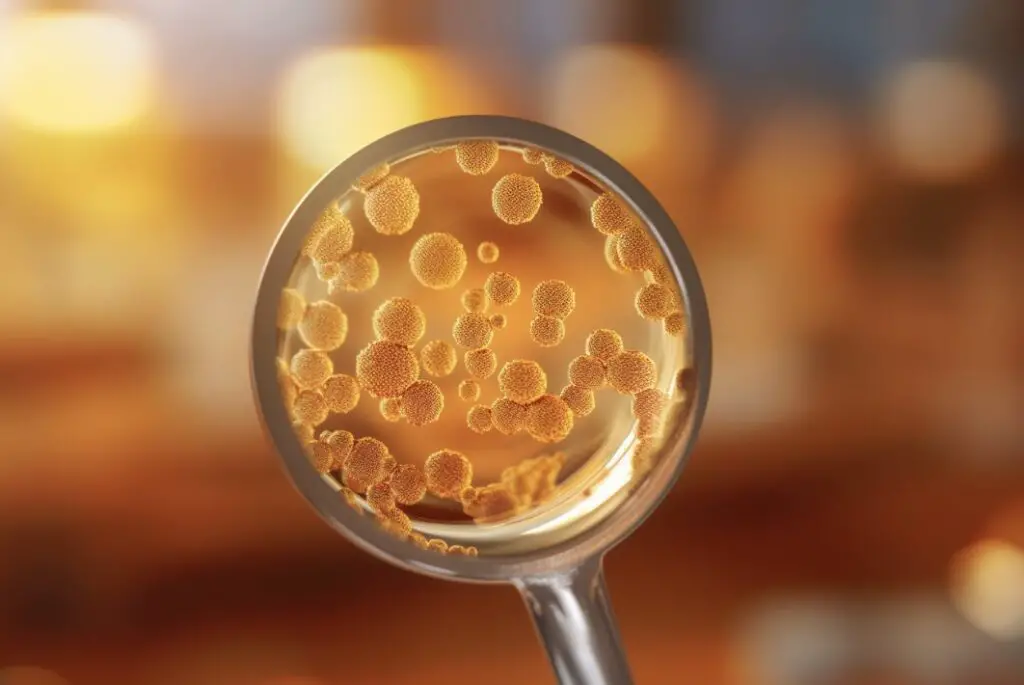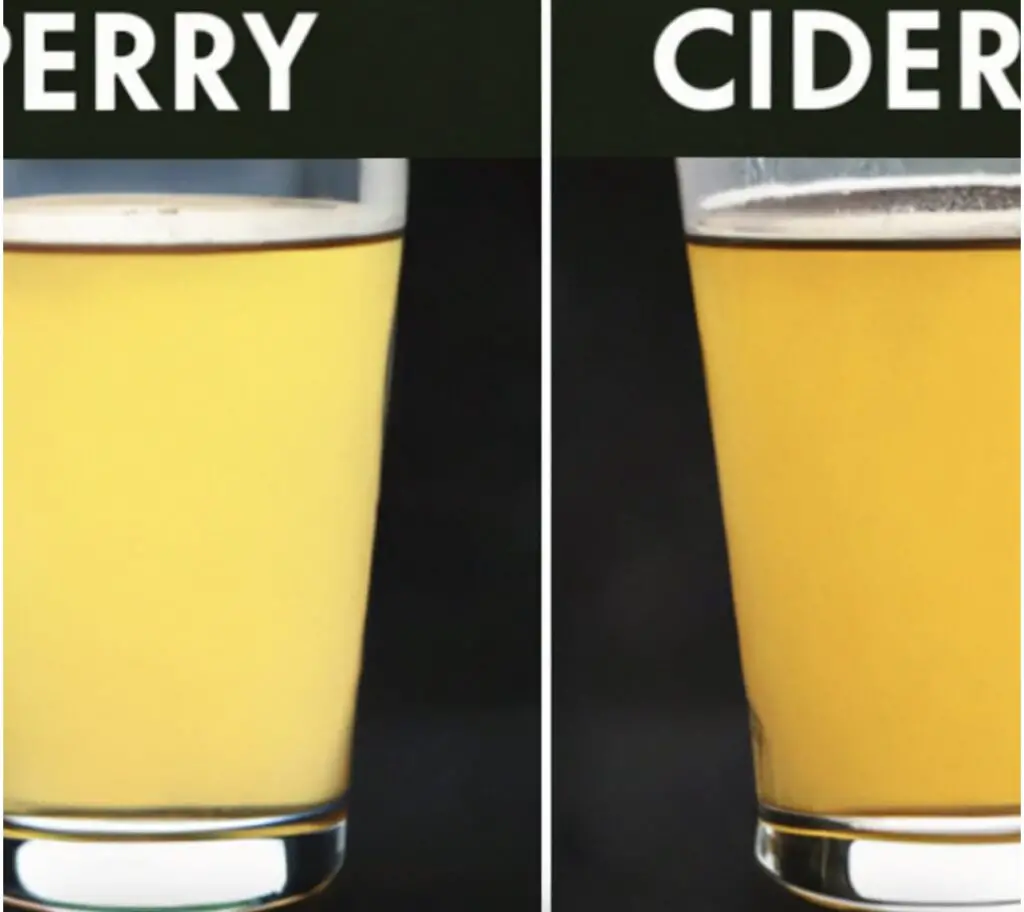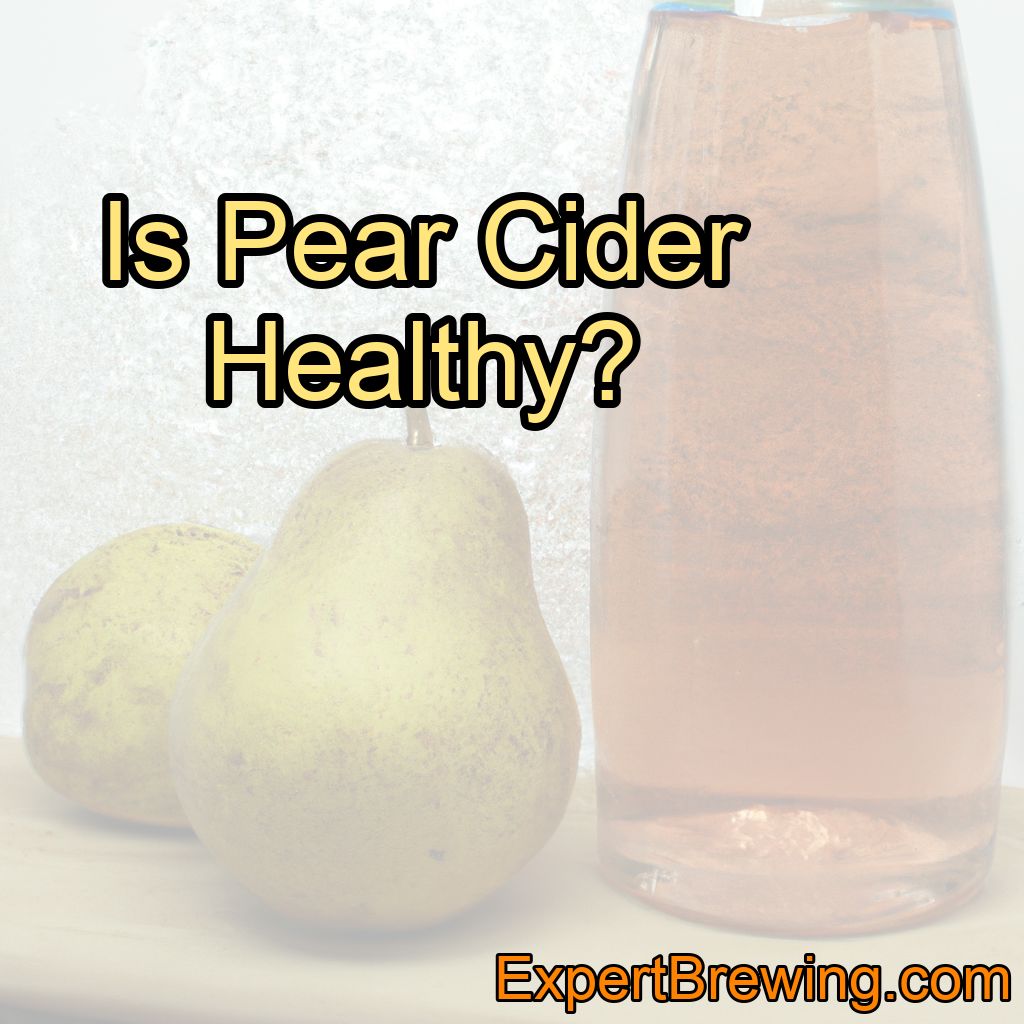As a passionate brewer, I’ve been researching and experimenting with various types of ciders and beers for years.
Pear cider, also known as perry, is a beverage that has grown in popularity over the last decade.
People often wonder about its health benefits and how it compares to other alcoholic drinks.
In this post, we’ll explore whether pear cider is healthy, and discuss its nutritional content, potential health benefits, and the factors that can influence its impact on our health.
What is Pear Cider?
Before we delve into the health aspects of pear cider, it’s important to understand what it is. Pear cider, or perry, is an alcoholic beverage made from fermented pear juice.
It has a similar production process to apple cider, but with a distinct pear flavor. Pear cider can range in taste from sweet to dry, and its alcohol content can vary between 4% to 10% ABV (alcohol by volume).
Nutritional Content of Pear Cider
When considering the health aspects of any food or beverage, it’s essential to examine its nutritional content. Here is a general overview of the nutritional values of pear cider:
- Calories: A 12-ounce (355 ml) serving of pear cider typically contains between 150 and 210 calories. The calorie count can vary depending on the brand and the sugar content of the cider.
- Carbohydrates: Most pear ciders have between 15 and 30 grams of carbohydrates per serving, with the majority of those carbs coming from sugars.
- Sugars: The sugar content in pear cider can range from 10 to 25 grams per serving, depending on the brand and the type of pears used. Some pear ciders are sweetened with added sugars, while others rely solely on the natural sweetness of the pears.
- Vitamins and minerals: Like most alcoholic beverages, pear cider is not a significant source of vitamins or minerals. However, it may contain trace amounts of potassium, magnesium, and vitamin C.
In summary, pear cider is a relatively low-calorie alcoholic beverage with a moderate amount of carbohydrates and sugars. It is not a significant source of vitamins or minerals.
Antioxidants in Pear Cider
One potential health benefit of pear cider is its antioxidant content. Antioxidants are compounds that help protect our cells from damage caused by free radicals, which are unstable molecules that can cause oxidative stress and contribute to chronic diseases.

Pears are a good source of antioxidants, including flavonoids, phenolic acids, and vitamin C. When pears are fermented into cider, some of these antioxidants are retained in the final product.
The exact amount of antioxidants in pear cider can vary depending on the type of pears used, the fermentation process, and the storage conditions.
While the antioxidant content of pear cider is generally lower than that of whole pears, consuming pear cider in moderation may still provide some antioxidant benefits.
Can Pear Cider Help with Digestion?
Another potential health benefit of pear cider is its impact on digestion. Pears are a natural source of dietary fiber, which is essential for maintaining a healthy digestive system. Some studies have suggested that pectin, a type of soluble fiber found in pears, may help to promote healthy gut bacteria and improve digestion.
However, the fermentation process used to create pear cider breaks down most of the pectin and other fibers found in whole pears. As a result, pear cider contains very little dietary fiber.
While whole pears can contribute to a healthy digestive system, pear cider is not a significant source of dietary fiber and should not be relied upon for digestive health benefits.
Pear Cider vs. Apple Cider
When it comes to health benefits, how does pear cider compare to its more popular cousin, apple cider? Both beverages are made through the fermentation of fruit juice, and their nutritional content is fairly similar.
In terms of calories and carbohydrates, pear cider and apple cider are quite comparable, with both containing around 150 to 210 calories and 15 to 30 grams of carbohydrates per 12-ounce serving. Sugar content can vary between the two, but they tend to have similar sugar levels overall.

As for antioxidant content, both pear and apple ciders contain antioxidants, but the specific types and amounts may differ depending on the fruits used and the production processes. Overall, neither beverage stands out as being significantly healthier than the other.
When comparing pear cider to apple cider, neither beverage is clearly superior in terms of health benefits. Both ciders have similar calorie, carbohydrate, and sugar contents, and both provide some antioxidant benefits.
Moderation is Key
As with any alcoholic beverage, the key to enjoying pear cider in a healthy way is moderation. Excessive alcohol consumption can lead to a variety of health problems, including liver damage, increased risk of certain cancers, and addiction.
The Dietary Guidelines for Americans recommend that adults who choose to consume alcohol do so in moderation, which is defined as up to one drink per day for women and up to two drinks per day for men. One serving of pear cider (12 ounces) is considered one standard drink.
To enjoy pear cider in a healthy way, it is important to consume it in moderation and to be mindful of the overall calorie, carbohydrate, and sugar content of the beverage.
How to Choose a Healthier Pear Cider
When selecting a pear cider, there are a few factors to consider if you’re trying to make a healthier choice:
1. Sugar content: Opt for a pear cider with a lower sugar content, as excessive sugar intake can contribute to weight gain and other health problems.
2. Alcohol content: Be mindful of the alcohol content of the pear cider, as higher alcohol levels can lead to increased calorie content and a greater risk of overconsumption.
3. Additives: Look for pear ciders made with minimal additives or artificial ingredients, as these can contribute to the overall calorie and sugar content of the beverage.
By selecting a pear cider with a lower sugar and alcohol content and minimal additives, you can enjoy a healthier version of this popular beverage.
Conclusion
Is pear cider healthy? In moderation, pear cider can be enjoyed as part of a balanced diet. While it is not a significant source of vitamins, minerals, or dietary fiber, pear cider does provide some antioxidant benefits.
However, it is important to be mindful of the calorie, carbohydrate, and sugar content of the beverage and to consume it in moderation.
Here are 10 key facts about pear cider and its health aspects:
1. Pear cider is an alcoholic beverage made from fermented pear juice.
2. A 12-ounce serving of pear cider typically contains between 150 and 210 calories.
3. Pear ciders have between 15 and 30 grams of carbohydrates per serving, mostly from sugars.
4. The sugar content in pear cider can range from 10 to 25 grams per serving.
5. Pear cider is not a significant source of vitamins or minerals but may contain trace amounts of potassium, magnesium, and vitamin C.
6. Consuming pear cider in moderation may provide some antioxidant benefits.
7. Pear cider is not a significant source of dietary fiber and should not be relied upon for digestive health benefits.
8. Pear cider and apple cider have similar calorie, carbohydrate, and sugar contents, and both provide some antioxidant benefits.
9. To enjoy pear cider in a healthy way, it is important to consume it in moderation and be mindful of the beverage’s calorie, carbohydrate, and sugar content.
10. Choosing a pear cider with lower sugar and alcohol content and minimal additives can help you enjoy a healthier version of this popular beverage.
FAQs
Are ciders healthier than wine?
It is difficult to make a direct comparison between ciders and wine in terms of health benefits as they both have different nutritional profiles. However, ciders are generally lower in calories and alcohol content than most wines, which may make them a better choice for those watching their weight or alcohol intake.
Additionally, ciders may contain more antioxidants and vitamins due to the presence of apples, but this can vary depending on the cider-making process and ingredients used. Ultimately, moderation and choosing a drink that fits your personal dietary needs and preferences is key to a healthy lifestyle.
Is cider more alcoholic than wine?
It depends on the specific cider and wine being compared, as their alcohol content can vary widely. However, on average, wine tends to have a higher alcohol content than cider.
Is cider the healthiest alcohol?
There is no one “healthiest” alcohol, as all alcoholic beverages have potential health benefits and risks depending on factors such as the amount consumed and individual health status. However, cider made from fresh apples without added sugars or preservatives may have some potential health benefits due to its antioxidant content.
How many calories are in pear cider?
A 12-ounce serving of pear cider typically contains around 150-200 calories, depending on the brand and specific recipe.
Are pear cider high in sugar?
Yes, pear cider is typically high in sugar. The sugar content can vary depending on the brand and type of pear cider, but it is generally higher than other alcoholic beverages such as beer or wine. It is important to consume pear cider in moderation as excessive sugar intake can have negative health effects.
Are fruit ciders healthy?
Fruit ciders are not considered healthy as they are typically high in sugar and calories. It is recommended to consume them in moderation as a treat rather than as a regular beverage choice.




